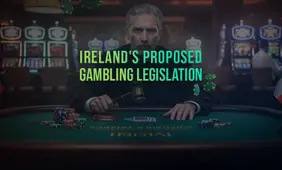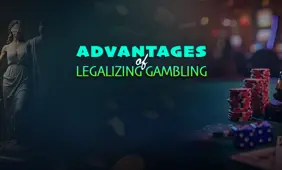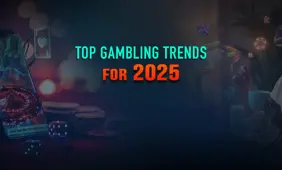Is the Dutch Market Smaller than First Expected?

"It's not all about size"; how many times have people heard that? When the Dutch online gambling market became regulated by the Kansspelautoriteit (KSA) on October 1, 2021, there was much speculation that it could become one of the biggest in Europe.
It appeared that the KSA was going to be arguably the strictest regulator in the online gambling industry when it came to approving licenses and policing the various brands. So far, this has, for all intents and purposes, looked to be the case.
Having only granted 10 initial licenses (40 firms have applied for one in the first wave), the most notable of which was to UK-based firms, bet365 and Tombola, it looked like the KSA was almost trying to set a precedent in terms of how to come to a decision when considering new applications.
Until that point, the UKGC (UK Gambling Commission) had been regarded by many as the toughest regulator in the industry, particularly having tightened measures two years ago; however, it appears that the KSA may now have that crown.
Even now, over six months later, the total number of online gambling licenses issued to operators has only just reached 18 - Belgium brand 711 Casino becoming the most recent. It was revealed in September that mega-conglomerate, Entain would receive a Dutch license at some point in 2022, though anything concrete has yet to materialize. There is also no indication which of the in excess of 20 brands that the company owns will operate in the country, with Coral, Ladbrokes, and bwin all being possibilities.
There has been a recent movement on the license approval for the Kindred Group - giants on their own with multiple other brands under the Swedish group's umbrella, who now prepare to enter the Dutch market. It came as somewhat of a surprise that both of these entities were left out of the initial acceptance phase, which turned out to be somewhat of a coup for the British firm bet365, though one that it has seemingly been unable to capitalize on.
Is the KSA More of a Hindrance than a Help?
While the aim of any reputable regulator in the online gambling industry is to essentially help to make the player experience better and also safer through regularly monitoring each of the sites - the UKGC and MGA (Malta Gaming Authority) being prestigious examples, there seems to be somewhat of a question mark over the KSA.
The limited number of initial licenses that were granted in the first round indicates that the KSA potentially wants as much control as it can possibly get, especially when considering that it never thought about receiving applications from many major firms.
It begs the question - how much is ego in play within the KSA? Refusing or even not even considering some of the biggest brands in the industry appears to be somewhat petty, especially when keeping in mind the taxes that they could easily afford to pay and quickly benefit the country's infrastructure. It is also taking away from the player's experience, who know these big brands very well and are aware of what they offer, not least of which are some of the biggest welcome bonuses in the industry.
In terms of a government body, it certainly feels like the KSA wants to be the 'biggest bully in the playground' in order to feel as though they are relevant within Dutch regulatory circles, hence the tougher usual measures enforced on gambling companies, in addition to what appears to be a childish game of 'tit for tat'. Compared to the UKGC and MGA, the KSA is setting numerous precedents.
What appears to be the case, though, is that there is no argument to suggest that the KSA does not have players' safety at the top of its agenda, with plenty of measures in place to protect the customers. Indeed, each of the online operators that have licenses had to make sure that they had procedures in place, such as a stringent KYC (Know Your Customer) policy, in addition to measures such as the ability to opt out at any point.
The Effect of Tougher Advertising Policies on Dutch Market Growth
Initially, it appeared that the Dutch online gambling market was in line to become one of the biggest in Europe. However, certain events have occurred since it became regulated to suggest that this might not necessarily be the case.
In December, it was revealed that Dutch government officials wanted to introduce tougher advertising measures for online gambling companies that operated in the country. As such, a proposal for a major clampdown on the number of gambling advertisements was made in parliament, with the motion receiving "overwhelming support."
The general consensus among several political parties was that "gambling advertisements must come to an end", following submissions from the socialist and democratic parties.
Concerns that arose, which led to the proposal being submitted, was that there would be "major social consequences, such as financial problems and addiction problems" among residents in the country should companies be allowed to continue in the country.
Perhaps what is not widely reported, though, is that accompanying every advertisement created by online gambling companies are warnings that relate to responsible gambling - the most established operators know that information that is misleading can result in a heavy fine.
Most recently, Dutch political party member Frank Weerwind - minister for legal protection, revealed in a statement that new advertising measures will "come shortly" and that there is a "clear call" from the House of Representatives relating to gambling addiction.
Weerwind noted: They have told me that the sheer volume of gambling advertisements leads to unrest among ex-addicts and problematic gambling among people who identify with the role models appearing in the advertisements. That was the reason for me not to wait.
I try to include the sector in this, but I also have my own political-administrative responsibility. The law is built more on principles than on very sharp boundaries. The law leaves room, and it is up to me to clarify what we intend to do with the law and how we achieve that.
What perhaps is not widely known is that Weerwind was keen to emphasize is that there are some major signs of addiction in the market already: The gambling sector itself also sees the problem. The sector has responded well to this by limiting the number of gambling advertisements per commercial block to one on February 1.
He continued: Now they are introducing additional measures, such as stopping radio commercials, outdoor advertising, print media and further limiting the times when TV commercials are broadcast.
These are steps that have an effect in the short term. The chamber also wants a ban on untargeted advertising. Any insider knows that the legislative amendment required for this usually takes two years. I try to shorten that period to a year by taking short, quick steps.
Arguably one of the most successful marketing techniques for online gambling companies is to use well-known icons in the public eye - this is especially the case in order to promote the sportsbook side of iGaming - sports figures, such as footballers, in particular, being used very frequently. Although standards have been implemented by the law for the use of role models, there have been concerns raised that this could have undue influence, especially on those in the country who are under the age of 25.
Weerwind gave an illustration, elaborating: They don't use a well-known footballer of the moment, but ex-footballers who are still very popular with a young audience. My conclusion is that we need to set sharp, clear standards. So, we're going to stop using role models.
Although nothing has yet been approved in relation to tougher advertising measures being implemented, this is set to be voted on by the House of Representatives, with Weerwind set to lead an open discussion.
There could be an argument already, though, that even the mere suggestion of tougher bans on advertising has led to operators becoming more cautious in their marketing strategies.
This could have resulted in a decrease in registrations at online gambling companies that are on offer in the country.
Could Bans Affect the Growth of the Market?
Because regulated online gambling is still very much in its infancy in the Netherlands, in addition to the fact that there could now be tough advertising measures placed on operators will no doubt have a significant effect on the overall market.
Coupled with the fact that there are only 18 online gambling firms in the country, very few of which are big brands, it may mean that when more operators are granted licenses, there is little opportunity or even freedom to raise awareness about who they are and what they do.
Although the Netherlands only has a population of just over 17 million, its GDP (Gross Domestic Product) is, by comparison, very respectable, standing at $913 billion. It was this that provided an initial indicator that the Dutch online gambling market could have a significant amount of potential, especially with a favorable cost of living and an average salary of over €2500 per month.
In the UK - one of the largest online gambling markets in the world, the figures are similar, leading analysts to predict the Netherlands to follow suit. Such instigation of an advertising ban so early after the market becomes regulated could considerably decrease its potential.
The Future for the Dutch Gambling
In terms of its ranking in global markets for the online gambling industry, these latest tougher measures that have been imposed could mean that growth is merely modest and for ambitious operators, pursuing a license in the country could be considered to be a pointless exercise.
This is especially when factoring in how long it takes for the KSA to approve licenses in the Netherlands.
However, the next 12 months will certainly provide more of a clue as to how big the market in the country can become, based not only on the number of providers that are granted a license but also on how much the advertising legislation will affect customer acquisition. Big, it appears, in this case, is better.





Review this Blog
Leave a Comment
User Comments
comments for Is the Dutch Market Smaller than First Expected?